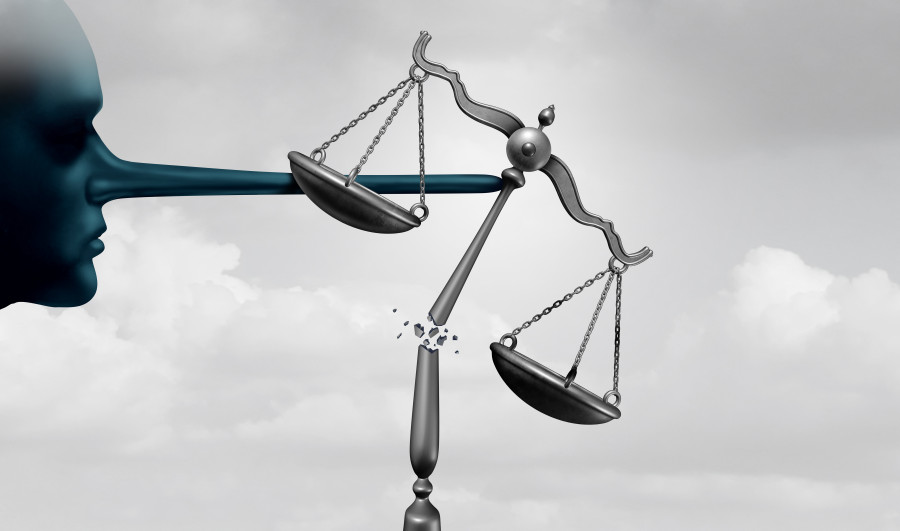Columns
Seized by the corrupt
Yes, previous governments were also corrupt—but the Nepal Communist Party came to power to clean the government and do things differently.
Naresh Koirala
Of late, the KP Oli-led government has come under intense criticism for being indifferent towards the increasing corruption in the country. Public protests against corruption are becoming a common sight. In 2004, Nepal was the 90th most corrupt country, out of 175, in the Transparency International’s Corruption Perception Index (CPI) ranking. In 2019, it dropped to 124th.
The government argues that it did not create corruption; corruption has a long history and it cannot be controlled in a day. It inherited many corruption tainted files from the previous government and it was simply following decisions already made. The government says that it is not responsible for those decisions. The media reporting on corruption is politically motivated and hugely exaggerated, according to it. In a veiled scheme to control the media, it has tabled the Media Council Bill to Parliament.
An untenable argument
The government’s arguments are hopelessly flawed. It is true that corruption cannot be controlled in a day. But the appropriate executive and legislative action to stem it could have been initiated in the sixteen months the government has been in power. Instead, it appears complicit in perpetuating corruption. Its handling of the file to regulate the transport syndicate; its half baked investigation of the gold smuggling racket; its about-face on the Medical Education Bill; and its appropriation of millions of public money to give hand-outs to the parliamentarians demonstrate its complicity. None of these actions/investigations touched politicians. That is where the core of corruption resides; no one questions it.
Yes, previous governments were also corrupt. But the Nepal Communist Party came to power to clean the government and do things differently. Blaming previous governments is no defence. Moreover, some of the published material may have no basis in fact, and may be considered ‘fake’. But to argue the media coverage is biased against the government is absurd. Many consider this argument a pretext to justify the Media Council Bill, widely criticised, both nationally and internationally, as a ‘killer of the free press’.
Government Spokesperson Gokul Baskota says the characterisation of the intent of the Bill is misleading and in bad faith: ‘We fought for democracy, freedom of press’; ‘Mr Oli went to prison for 14 years fighting for democracy; believe us, we will not do anything to undermine the freedom of the press’.
It may be true that the Nepal Communist Party adopted a liberal democratic polity, including freedom of the press, after the decade-long violence to establish a one-party dictatorship by some of the members failed. It is also a fact that Mr Oli went to jail for 14 years. But how can anyone trust politicians who have neither ethical standards nor a sense of public accountability—just because their statements entreat us to believe them? Why should Nepalis trust Mr Oli or his ministers, particularly after Mr Oli's turnaround in the Medical Education saga and his handouts to the parliamentarians?
History is replete with examples of freedom fighters of yesteryears turning into dictators using the same tools of democracy which brought them to power. Jomo Kenyatta of Kenya; Kwame Nkrumah of Ghana; Robert Mugabe of Zimbabwe are just a few examples. Recently, the likes of Hun Sen of Cambodia; Victor Orban of Hungary; Vladimir Putin of Russia; Recep Tayyip of Turkey who were elected through ‘democratic’ elections have used their legislative power to undermine democracy and have muzzled the media by coercion and legislation ‘to regulate’ them.
The people are angry
People are aware. Corruption will not be controlled unless the fight is taken to the political level. The experience to date suggests that Mr Oli is either unwilling or incapable of challenging his political partners.
People have taken note of the unholy relationship between highly controversial and ultra-rich businesspersons and the political leaders; of Oli’s silence on matters of conflicts-of-interest when members of Parliament unashamedly involve themselves in framing laws affecting their business; of his government ramrodding through unpopular bills in parliament that completely ignored the opposition. And the people are angry.
Pashupati Sharma’s song, Lutna Sake Lut Kancha, was an expression of such anger. The harassment of Sharma by Nepal Communist Party cadres was a vulgar response to a despondent, angry citizenry. Sharma spoke for millions of suffering Nepalis. They adored him for it.
The increasing momentum of the anti-corruption, non-partisan ‘Nepal for Nepalis’ movement and the heroic recognition of the anti-corruption crusader Gyanendra Shahi demonstrate that people are looking for an avenue to rally against the growing corruption. Characterising this anger as manipulation of people by the government's political foes is short-sighted and will not do KP Oli or his government any good.
The government seems to think that if it can successfully build some infrastructure projects and silence the media, the public anger will go away. This is a delusion. Corruption is an assault to people's dignity; it is deeply personal. Infrastructure projects cannot be a substitute for personal insults. There is sustained public protest against corruption even in middle-income countries, where the infrastructure is relatively good.
Recently, hundreds of thousands of citizens of the Czech Republic took to the streets demanding the resignation of Prime Minister Andrej Babis who has been charged with having a conflict of interest in connection to his businesses. In nearby Kolkata, street protests forced Mamata Banerjee to order politicians of her own party to return ill-gotten money to villagers. In 2016-2018, sustained public protests against corruption shook the government of Brazil and landed some powerful politicians in jail. In 2016, street protests brought down President Park Geun-hye-Choi Soon’s presidency in South Korea.
Appoint an ethics czar
Corruption undermines democracy, degrades humanity and destabilises society. It is an affront to an individual’s dignity. There may not be hundreds of thousands of people on Kathmandu’s streets yet, but make no mistake, people are getting angrier and the anger could explode at any moment. Just look at the demonstrations and protests that followed the Guthi Bill issue. It was not a protest just against a particular bill; it was an expression of public anger.
The root cause of corruption is the high cost of elections, conflicts-of-interest in Parliament, and the diminishing ethical standards of politicians and the bureaucracy they control.
Instead of blaming the media and pushing unpopular bills through the parliament or maligning opponents, the government should work on legislation to limit election expenses and zealously enforce them. It should pass conflict-of-interest legislation and stop parliamentarians from sitting in committees which formulate laws that directly influence their businesses. An independent ethics czar appointed by the parliament should be charged to keep an eye on conflict-of-interest cases, including the pervasive unholy alliance between leaders and big business.
The country is seized by the corrupt in cahoots with politicians. Unless the government starts to reign over them, ordinary people will take matters into their own hands. It is only a matter of time before public anger explodes. This will not be pretty.
Koirala is a Geotechnical Engineer in Vancouver, Canada.




 9.89°C Kathmandu
9.89°C Kathmandu















